How to Extract Hotel Prices from Booking.com Using Python?

Introduction
In the era of digital travel planning, obtaining accurate and up-to-date hotel price information is crucial for travelers and businesses alike. Booking.com, one of the world's leading travel marketplaces, offers a wealth of hotel pricing data that can be leveraged to gain competitive insights and make informed decisions. This blog will guide you through the process to extract hotel prices from Booking.com using Python, focusing on key requirements such as destination, check-in and check-out dates, number of guests, and hotel name. We will also discuss setting up an API to automate the process of web scraping data Booking.com using Python and deploying it on a free cloud hosting service.
Why Scrape Booking.com Hotel Prices Data?
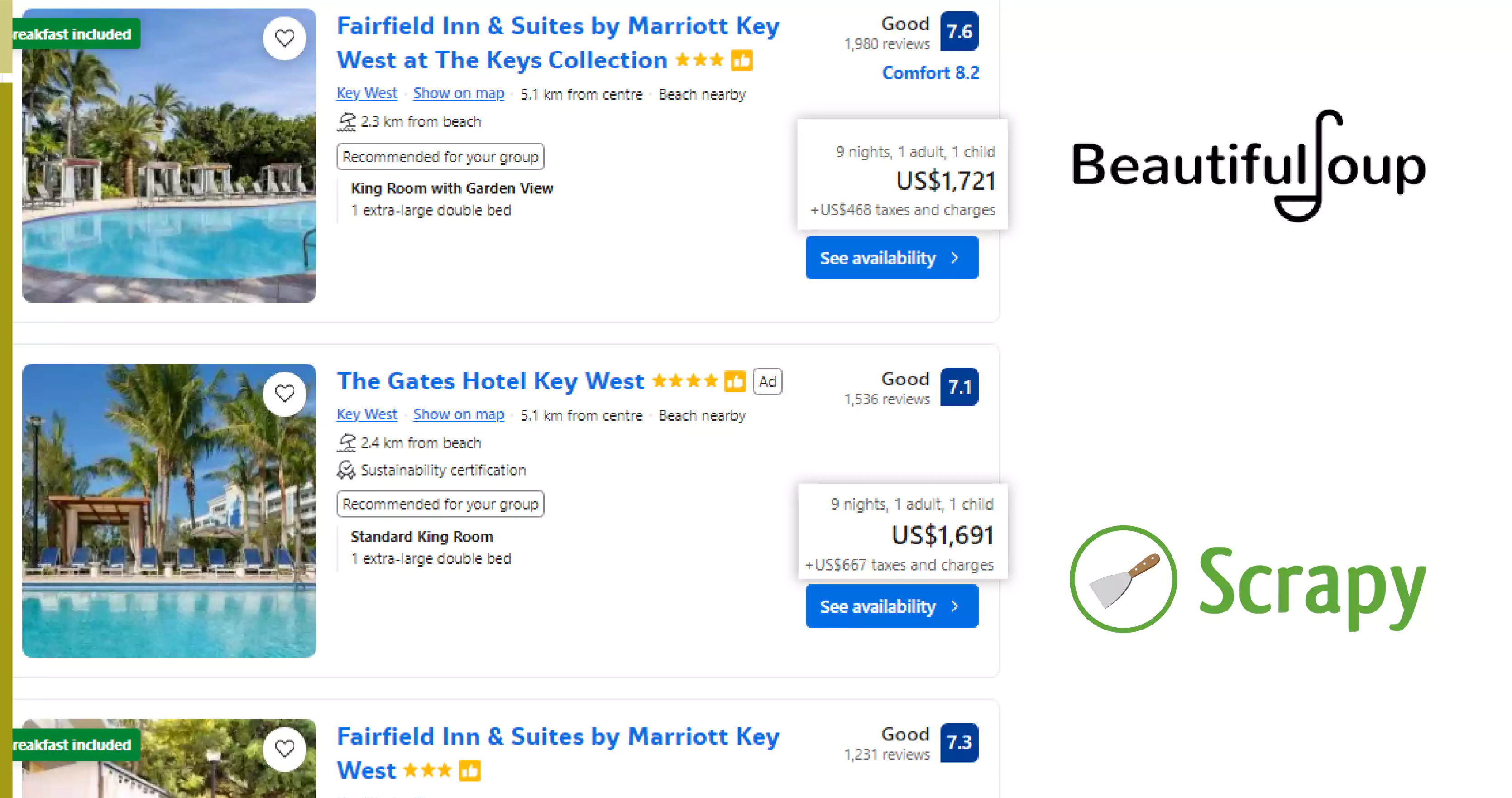
To scrape Booking.com hotel prices provides invaluable insights for travelers, businesses, and market analysts. As one of the largest online travel agencies, Booking.com offers a vast repository of hotel data, including real-time pricing information that is crucial for various applications.
For Travelers: Knowing the best available prices helps in making cost-effective booking decisions. When travelers use extract hotel prices from Booking.com, they can automate the monitoring of hotel prices based on specific criteria such as destination, check-in and check-out dates, and the number of guests. This ensures that they secure the best deals and discounts, enhancing their travel experience.
For Businesses: Companies in the travel industry, such as tour operators and travel agencies, benefit from scraping Booking.com hotel prices. It allows them to track competitors’ pricing strategies and adjust their offerings accordingly. This process, known as hotel data price tracking, helps businesses stay competitive in the market. Additionally, it aids in dynamic pricing models, allowing businesses to adjust their rates in real-time based on market demand and competition.
For Market Analysts: Extracting hotel prices from Booking.com provides rich data for market analysis. Analysts can use this data to study trends in the travel industry, such as seasonality effects on hotel pricing, regional price variations, and the impact of events or holidays. This travel data intelligence can inform investment decisions, marketing strategies, and other business operations.
Technical Advantages: Web scraping data from Booking.com using Python is a powerful technique due to Python’s extensive library support, including BeautifulSoup and Scrapy. These tools simplify the extraction of hotel prices from Booking.com, enabling efficient data collection and analysis.
Scraping Booking.com hotel prices data offers significant benefits across various sectors. Whether you're a traveler seeking the best deals, a business optimizing its pricing strategy, or an analyst studying market trends, Python Booking.com hotel price data extraction provides the necessary tools for accurate and up-to-date information.
Key Requirements for Scraping Booking.com
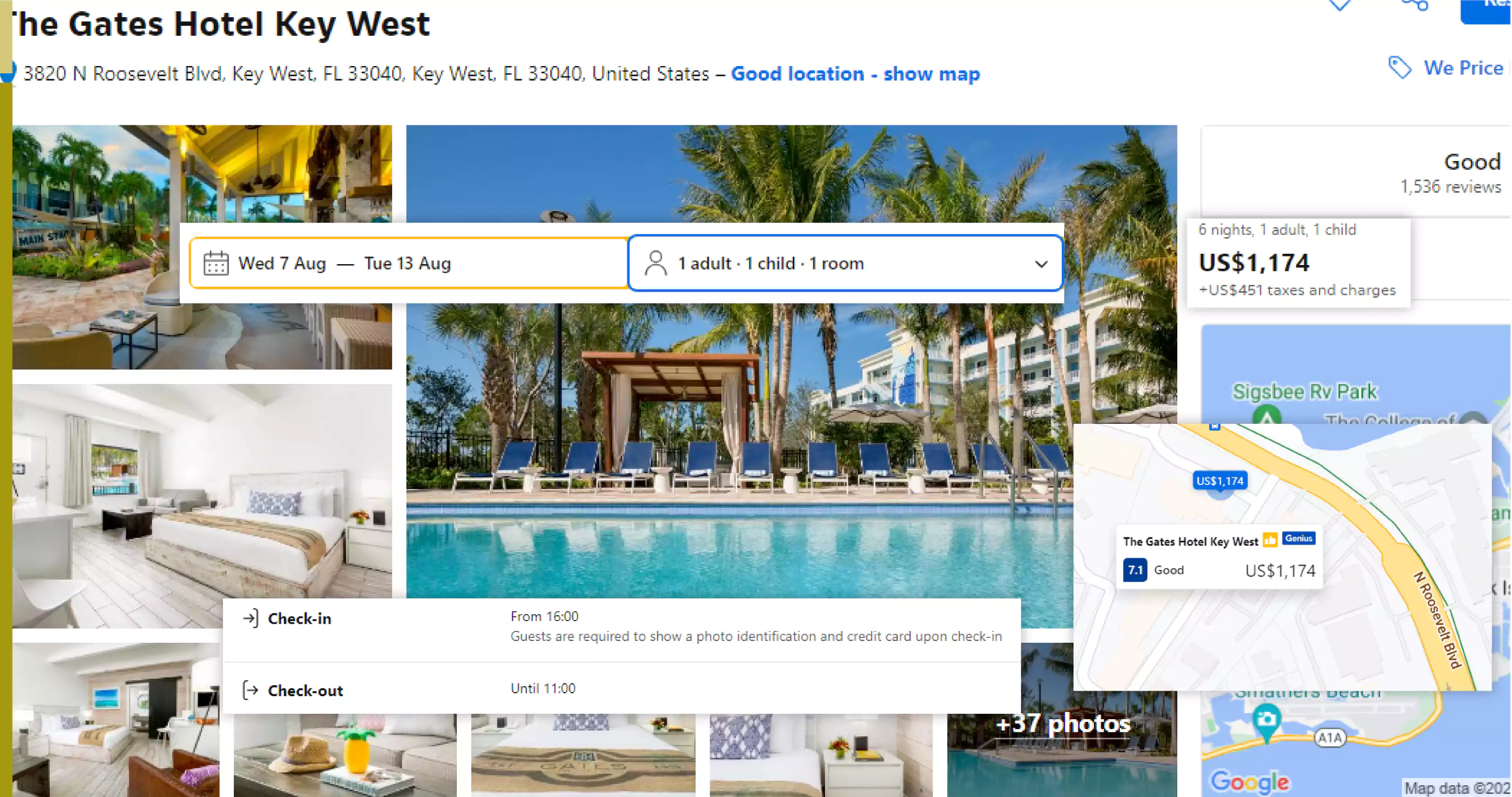
To effectively scrape Booking.com for hotel price data, we need to focus on the following key requirements:
Destination: The location where the user wants to stay.
Check-in and Check-out Dates: The dates for which the user is booking the accommodation.
Number of Guests: The total number of guests for the booking.
Hotel Name: Specific hotels of interest (optional but can be useful for targeted searches).
Tools and Technologies
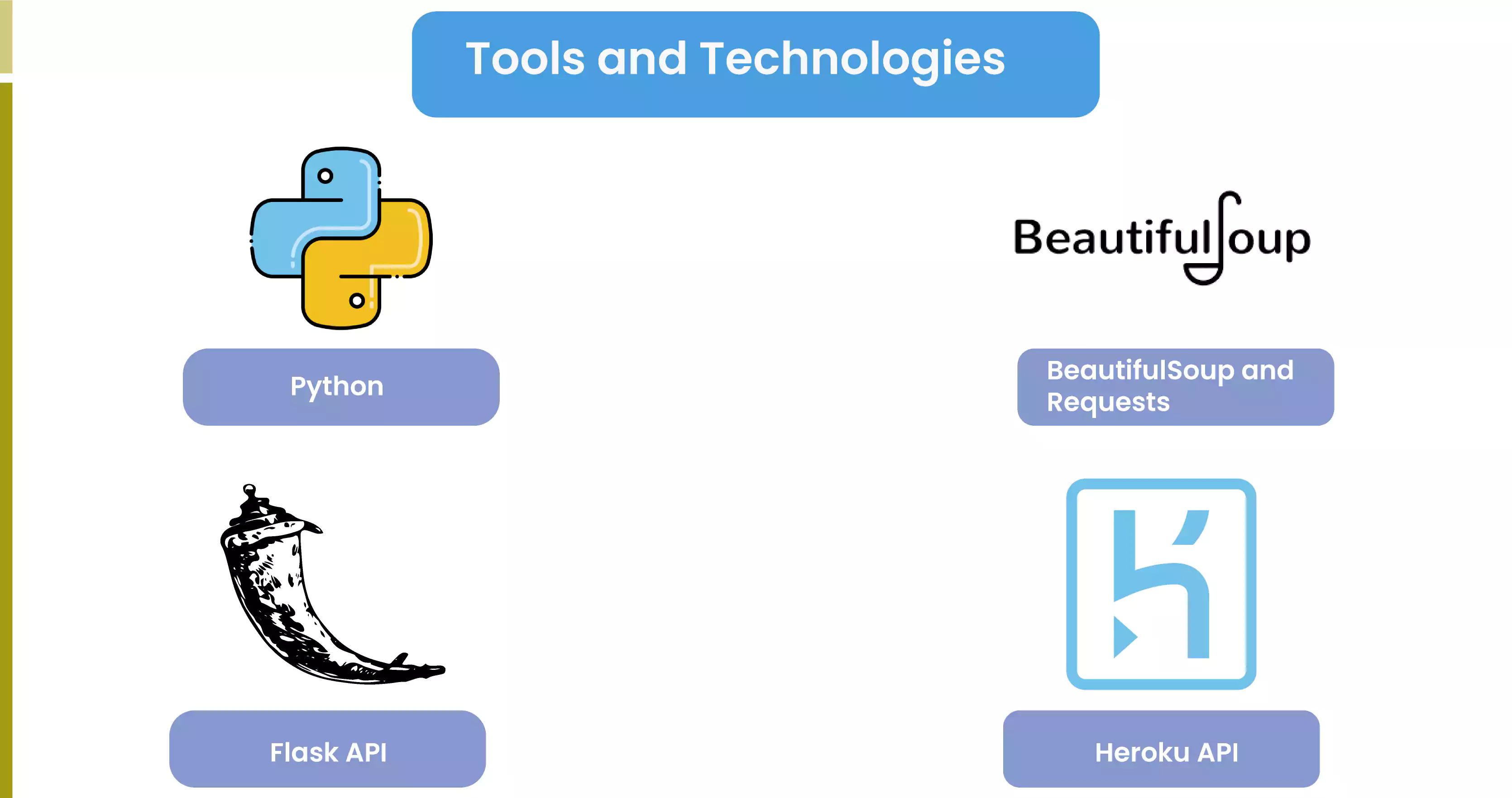
To extract hotel prices from Booking.com data, we will use the following tools and technologies:
Python: The primary programming language for scripting and automation.
BeautifulSoup and Requests: For web scraping.
Flask: For building the API.
Heroku: For deploying the API to a free cloud hosting service.
Step-by-Step Guide to Scraping Booking.com
1. Setting Up the Python Environment
First, ensure you have Python and the required libraries installed:
pip install requests beautifulsoup4 flask2. Scraping Hotel Prices
To scrape data from Booking.com, we will use the requests library to fetch the HTML content of the search results page and BeautifulSoup to parse it. Here’s a basic implementation:
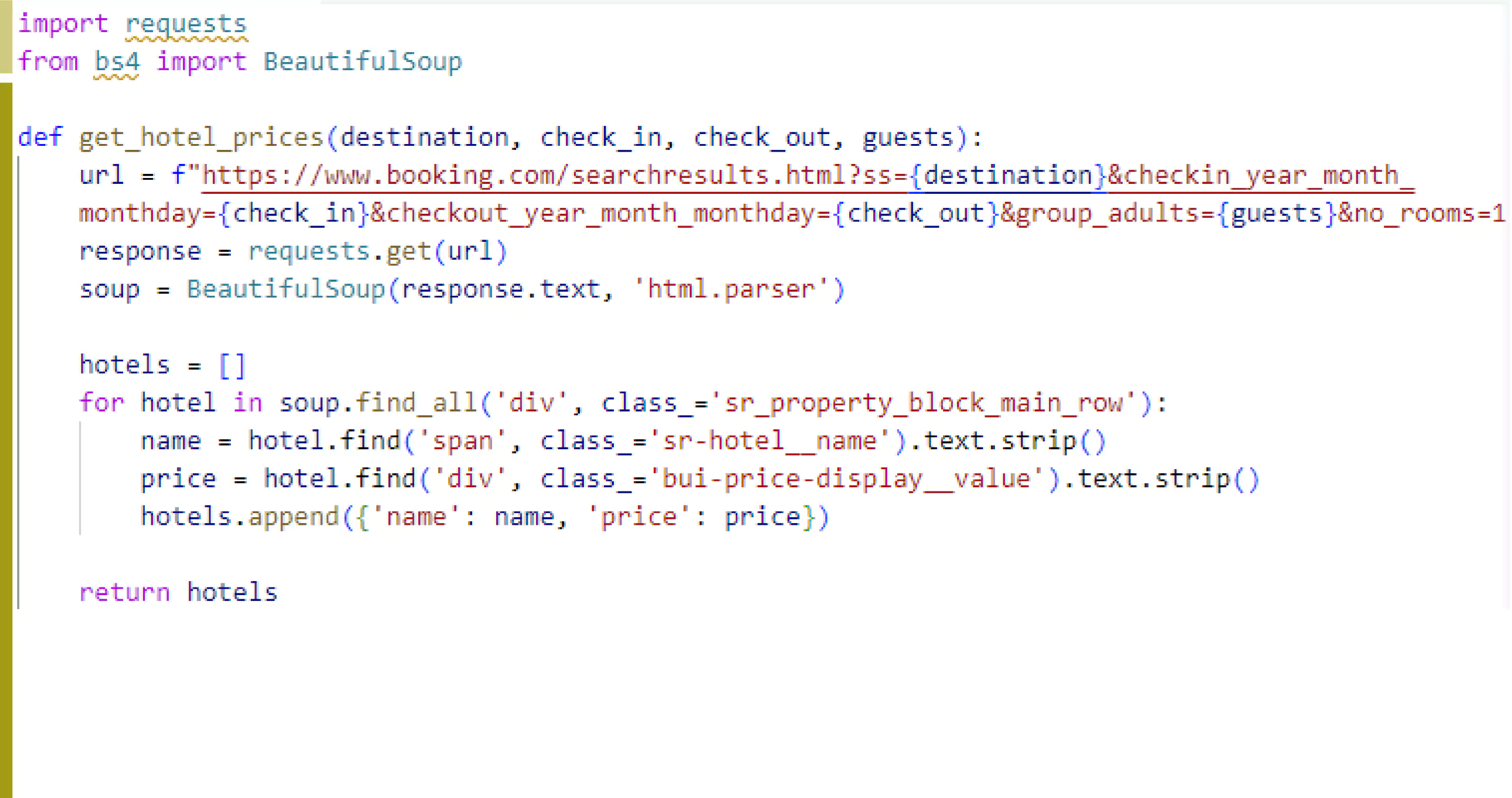
This function takes the destination, check-in and check-out dates, and the number of guests as inputs and returns a list of hotels with their names and prices.
3. Building the API with Flask
To make this scraping service accessible, we’ll build an API using Flask. The API will accept the search criteria as parameters and return the scraped data.
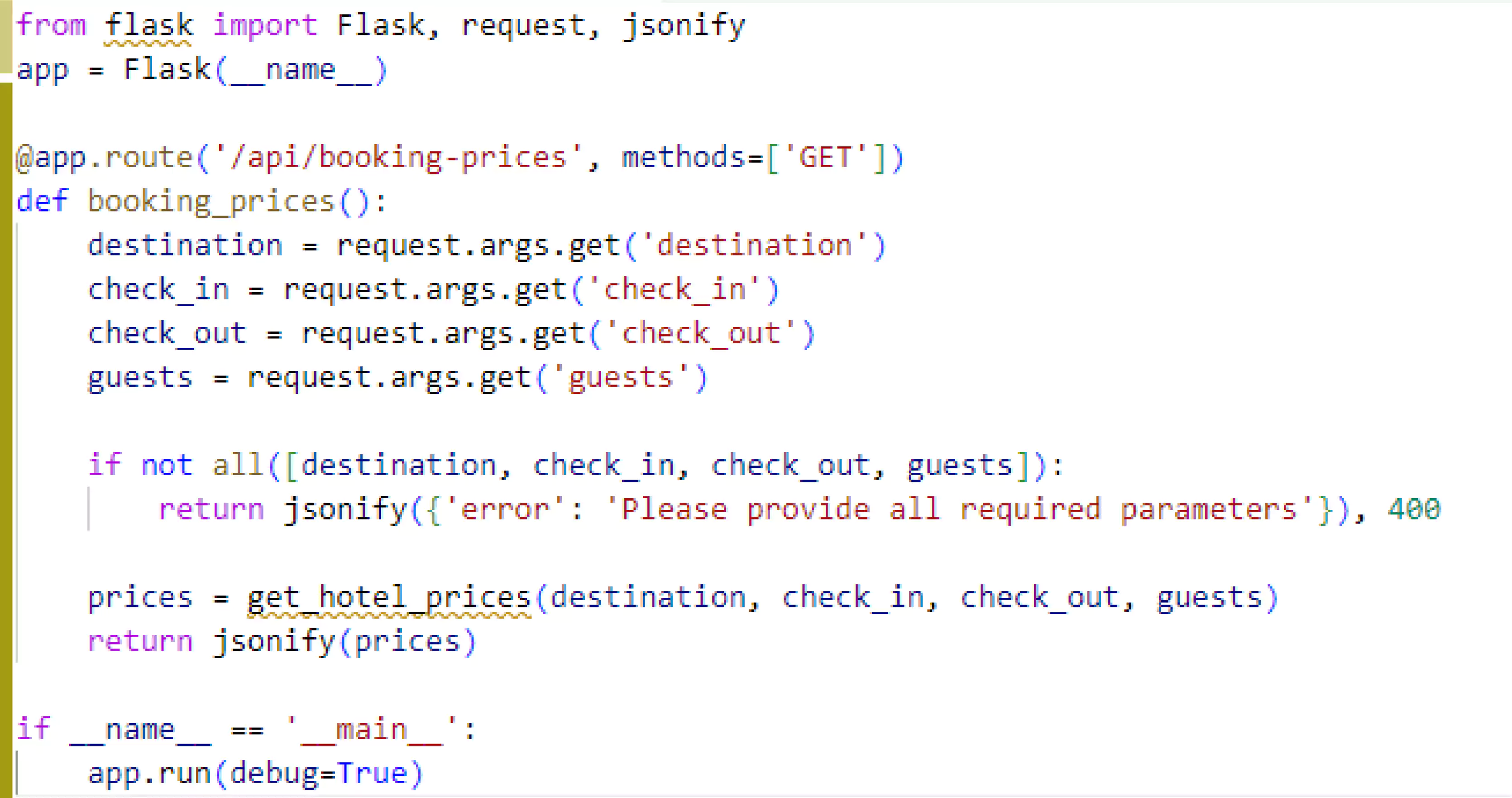
This API endpoint /api/booking-prices takes the query parameters for the destination, check-in and check-out dates, and number of guests, and returns the hotel prices in JSON format.
Deploying the API on Free Cloud Hosting
For free cloud hosting, we’ll use Heroku, a popular platform for deploying web applications.
1. Preparing for Deployment
Create a Procfile with the following content:
web: python app.py2. Deploying to Heroku
Follow these steps to deploy the API to Heroku:

Replace your-app-name with your desired app name.
Conclusion
This blog has offered a comprehensive guide on how to extract hotel prices from Booking.com using Python, building an API to serve the data, and deploying the service on a free cloud hosting platform. By following these steps, Travel Scrape can create a robust system for extracting and tracking hotel prices, empowering you to provide valuable travel data intelligence and hotel data scraping services.a
Whether you're looking to assist travel aggregators or aiming to scrape mobile travel app data for better market insights, Travel Scrape has the expertise you need. Contact us today to streamline your travel data collection and stay ahead of the competition!

